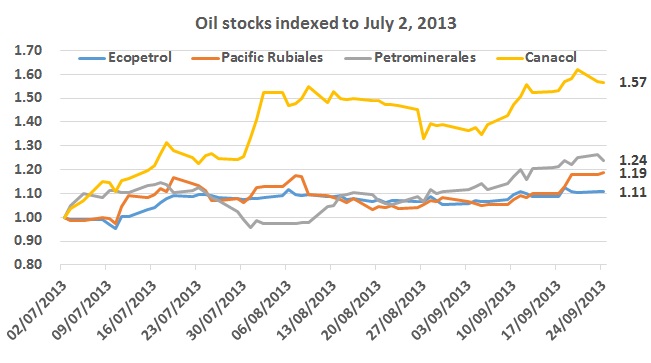
Investors who bought any of the four oil stocks listed on the Colombian stock exchange on July 2nd would be happy but those who bought Canacol will be especially happy.
Pacific Rubiales Energy (TSX:PRE) has formed new subsidiaries that will focus on the export of natural gas from production fields in the Sucre Department.
Nubia Orozco Acosta has been sworn in to run the National Environmental Licensing Authority after its former director Luz Helena Sarmiento took the Environmental Minister’s role earlier this month.
In 2012 the oil and financial industries paid their employees the highest of any sector in the national economy, according to the annual report of Colombia’s Federation of Human Management (ARIC).

No this is not the flag of some new country. Not even a new region of Colombia. It certainly is not the flag of the region from the eastern cordillera to the Venezuelan border that the Farc and ELN have generously offered to run on behalf of the Colombian people in a post conflict scenario.
Selling a small percentage of Ecopetrol (NYSE:EC) instead of the whole of electrical energy generator Isagén would be preferable for the government to raise money for a needed investment in infrastructure says the VP of Colombia’s Senate, Carlos Emiro Barriga.